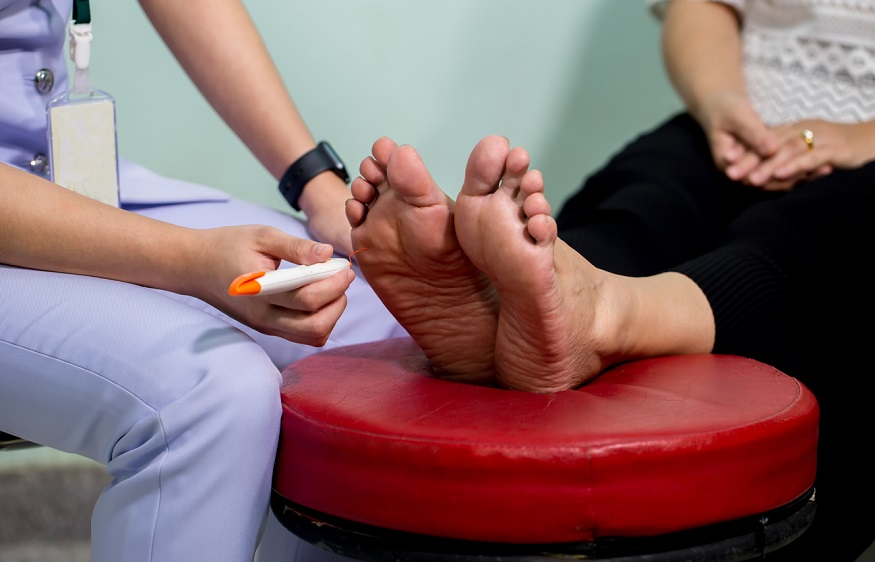What Do Podiatrists Do?
A podiatrist is a doctor of the feet. They are also known as DPM or doctors of podiatric medicine. A podiatrist’s name will be followed by the letters DPM.
This type of doctor or surgeon treats the foot, ankle, and leg’s connective tissues. A chiropodist is an archaic term for a podiatrist that is occasionally still used.
Medical Education
Like other physicians and surgeons, podiatrists complete four years of training and study in podiatric medical school. Then, they complete at least three years of residency training at hospitals and clinics to develop experience.
The American Board of Podiatric Medicine certifies podiatrists only when they have passed all requisite examinations. Some podiatrists may also pursue fellowship training focusing on a specific area of expertise. Thus, a podiatrist is an expert in foot health.
Foot ailments
Podiatrists treat all age groups. Most cure a variety of common foot ailments. This is comparable to a family physician or general practitioner.
Some podiatrists specialise in a variety of subspecialties of foot medicine. They might be experts in:
- surgery
- wound treatment
- physiology and sports medicine
- diabetes paediatric (children)
- alternative types of foot care
If your feet suffer, you may require the services of a podiatrist. You should have your feet examined even if you have no foot pain. A podiatrist can securely trim your toenails and remove rough skin from your foot. Additionally, they can recommend the ideal shoes for your feet.
Common foot ailments
- The most prevalent foot issues include ingrown toenails, blisters, warts, corns, and calluses.
- nail fungus infections
- foot diseases
- stinky feet, heel aches, heel spurs
- heel skin that is dry or damaged flat feet hammertoes
- neuromas\ssprains
- arthritic foot problems
- foot muscle or ligament discomfort
- Other podiatrists specialise in specific foot conditions, such as bunion excision, bone fractures, or shattered bones.
- tumours
- skin or nail infections
- Wound treatment Ulcers Arterial Disease Walking Patterns
- rehabilitative orthotics (foot braces and insoles)
- flexible casts amputations
- foot replacements
Risk factors
- Certain health conditions can cause foot problems in some individuals. Among these are obesity
- diabetes\sarthritis
- elevated cholesterol
- inadequate circulation of blood
- cardiac illness and stroke
People with diabetes are more likely to experience foot problems. Pay particular attention to any changes in the sensation of your feet. Record all foot-related indications and symptoms in a journal. Foot discomfort can be alleviated by treating the underlying cause.
Notify your podiatrist if you have any of the following diabetic foot complications:
- Calluses or rough skin, dry or cracked skin, dry or cracked toenails, discoloured toenails.
- a terrible foot odour accompanied by severe or searing discomfort
- Walking causes soreness, numbness, tingling, or severe pain in the calves (lower legs).
Why should you see a podiatrist?
If you experience discomfort or an injury in any portion of your foot, you may need to see your family doctor and a podiatrist. You may also consult with different types of specialists. Physiotherapy may also alleviate your discomfort.
Your family doctor or general practitioner can check your foot to determine the source of your pain. Tests and scans for foot discomfort include a blood test, a nail scraping, an ultrasound, an X-ray, and an MRI scan.
Foot issues may necessitate a visit to a physician or podiatrist for the following reasons:
- Infected nails. If your foot discomfort results from a general health condition, your family doctor may be able to prescribe medicine to alleviate it. For instance, antifungal medications may be required to treat nail infections.
- Gout with joint pain may cause discomfort in the feet and toes. Both gout and arthritis require treatment to alleviate their symptoms. Your primary care physician or podiatrist can treat these issues.
- For flat feet and weak or torn foot ligaments, orthotics, such as a foot brace or arch support, may be required. A podiatrist will build personalised foot support braces for you by casting your feet.
- Diabetes can harm nerves in the feet and elsewhere. This might result in foot and leg numbness, discomfort, and ulceration. Diabetes-related foot problems require consultation with a podiatrist and other physicians. This may include your primary care physician, vascular surgeon, and neurologist (nerve specialist).
- Ankle and knee problems: An ankle or knee issue may necessitate consultations with a podiatrist, orthopaedic surgeon, and sports medicine physician to treat its underlying cause. You may also require long-term physical therapy to strengthen the knee, ankle, and foot joints and muscles.
